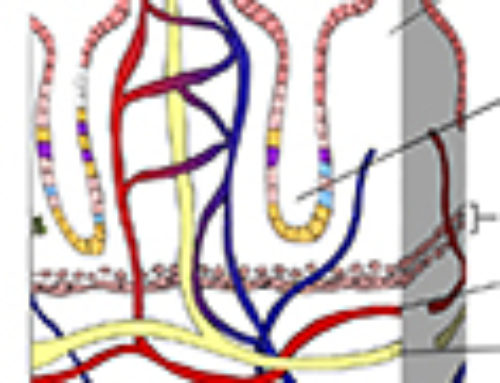
Post Traumatic Stress Disorder (PTSD) is a label for the range of symptoms that one may experience days, weeks, months or even years after being exposed to a traumatic event or series of events.
These traumatic events include:
- child abuse and domestic abuse
- violent attacks, such as rape, mugging, or torture
- threats of violence or verbal abuse, such as bullying
- disasters, both natural and human-caused
- being kidnapped or held captive
- military combat
- accidents
Occasionally Post Traumatic Stress Disorder arises from witnessing the trauma of another person, particularly a friend or relative. The events usually involve a threat to the person’s life or physical integrity. The immediate feelings are shock, horror, helplessness and intense fear. Post Traumatic Stress Disorder is unique amongst mental disorders because the person has to have been exposed to a traumatic event to be diagnosed with Post Traumatic Stress Disorder.
Sign and Symptoms
The symptoms that people suffering from Post Traumatic Stress Disorder experience are often described and divided into three categories: intrusions, hyper-alertness and avoidance.
1. Intrusions
This refers to re-experiencing or recalling the events as nightmares or flashbacks that occur suddenly and without conscious control. Intrusions are very distressing, often disrupting sleep and normal activities of life.
2. Hyper alertness
A person is often described as being in a state of hyper vigilance or increased sensitivity. An example of this is a phone ringing or the arrival of a person may lead to a physical reaction (eg jumping with fear or feeling nauseous) which is out of proportion to the stimulus. The person is agitated, edgy and appears to be on the lookout for a perceived danger.
3. Avoidance
The person will avoid anything that may result in a memory of or a feeling from the original traumatic experience. The person may report feeling emotionally numb, in that they are unable to experience their usual feelings for people and things. Consequently they may often act very distance and impersonal to people with whom they are closest and ultimately impacts upon interpersonal relationships. Avoidance is characterised by deliberate attempts to keep memories of the traumatic event out of mind. Such avoidance can result in a person going to extreme lengths to avoid people, places and activities that trigger distressing memories. While avoidance symptoms involve effortful behaviour, numbing symptoms are involuntary. Numbing symptoms are reflected through a loss of interest in activities that formerly brought enjoyment, detachment or estrangement from others, restricted emotional responses (e.g., being unable to experience joy or love), and a sense of foreshortened future. These numbing symptoms are thought to particularly characterise more chronic and severe forms of the disorder.
Other characteristic symptoms of Post Traumatic Stress Disorder
Often the person finds it difficult to trust others or to feel secure and safe. As this continues the person becomes detached from friends, colleagues and family, thus adding to his/her isolation. Furthermore, the person may experience physical signs such as sweating, rapid breathing and becoming agitated. Poor quality of sleep affects concentration and memory, and thus can lead to deterioration of work and study performance.
Causes
Post Traumatic Stress Disorder is characterised by the development of a long-lasting anxiety response following a traumatic or catastrophic event. Typically, the individual experiences or witnesses a traumatic event such as actual or threatened death, serious injury to oneself or another person, or a threat to the personal integrity of oneself or others. The individual’s response involves helplessness, intense fear or horror.
Diagnosis
Post Traumatic Stress Disorder is rarely diagnosed on its own. It is often accompanied by depression, panic attacks, social phobia, anxiety, agoraphobia or other psychiatric illnesses. According to the World Health Organization’s (WHO) International Classification of Diseases (ICD)-10th Edition, post-traumatic stress disorder is diagnosed when the following criteria is met:
- The individual has developed actual or preferred avoidance of cues associated with the traumatic event.
- The individual has experienced an extremely traumatic event as described previously.
- The individual experiences repetitive and intrusive re-enactments of the trauma in memories, daytime imagery, and dreams.
- The individual does not have full memory recall of the traumatic event, OR
- The individual experiences increased psychological sensitivity and arousal indicated by at least 2 of the following: sleep disturbance; irritability or anger; difficulty concentrating; hyper vigilance; or being easily startled.
The main difference between Post Traumatic Stress Disorder and Acute Stress Disorder (ASD) is the time that has elapsed since the traumatic event. ASD is diagnosed between two days and one month after a traumatic incident and PTSD is diagnosed after the first month.
Complications
Post Traumatic Stress Disorder is a mental disorder associated with significant disability and handicap, affecting social, mental and physical health which impacts on the person’s enjoyment and functioning in everyday activities.
Having Post Traumatic Stress Disorder also may place you at a higher risk of other mental health problems, including:
- Depression
- Drug abuse
- Alcohol abuse
- Eating disorders
- Suicidal thoughts and actions
- Generalized anxiety disorder
- Panic disorder
- Bipolar disorder
- Phobias and
- Dissociative disorders.
Successful treatment of Post Traumatic Stress Disorder is increased when these other conditions are appropriately identified and treated as well.
Treatment
Treatment of Post Traumatic Stress Disorder can be very effective and help you regain a sense of control over your life. With successful treatment, you can also feel better about yourself and develop coping mechanisms to manage if any symptoms arise again. The three arms of treatment are patient education, pharmacotherapy or medications and psychotherapy. This combined approach can help improve symptoms and teach the person skills to cope better with the traumatic event and its aftermath.
When the trauma has just occurred, it is important to take good physical and emotional care of yourself. In the days and weeks following the traumatic event, try to get adequate rest, exercise, sleep and nutrition. Address and deal with painful memories and feelings as they arise. Talk about what happened with someone who is caring and emphatic, this could be a friend or family member or a professional such as a counsellor. There is some controversy over the benefits of immediate counselling after trauma. Those most people agree that recounting the details of the event and expressing their feelings the person can become aware that their reactions are a normal part of coping with traumatic stress. Furthermore this immediate intervention may sometimes prevent an acute reaction from becoming chronic long term issue.
Pharmacotherapy or Medications
Several types of medications can help symptoms of post-traumatic stress disorder get better. Antidepressants can help symptoms of both depression and anxiety. They can also help improve sleep problems and improve your concentration. Anti-anxiety medications also can improve feelings of anxiety and stress.
Which medications are best for you depends on your specific symptoms and situation. Tricyclic antidepressants, such as Tofranil and Elavil, or SSRIs such as Prozac or Zoloft, are helpful. Additionally, Catapres and Inderal are known to relieve agitation, while Xanax may help some people sleep. The doctor will work with the person to find medications that work well and have the fewest side effects. It may take a few tries. But there should be an improvement in their mood and other symptoms within a few weeks. Importantly, any side effects should be immediately discussed with health care professionals.
Psychotherapy
Several forms of therapy may be used to treat both children and adults with post-traumatic stress disorder. Which form is best depends on the symptoms and situation. One type made be trialled but then changed to a different type of therapy, or combine elements of several. Therapy could also be either individual, group or both. Group therapy can be of great value as it helps people regain a sense of community and practice their interpersonal skills and healthy ways of relating to people. Attention to a range of issues, including the effects on the family, education about the disease and treatment options, is paramount. PTSD can have devastating effects on the family, and family therapy may be warranted.
Some types of therapy used in PTSD treatment include:
- Cognitive therapy
- Cognitive behaviour therapy. This uses ‘response prevention’ techniques that encourage the person to learn how to think about the trauma but not experience such high levels of arousal and distress.
- Exposure therapy
All these approaches can help the person gain control of the fear and distress that happen after a traumatic event and break the pattern of self defeat by re-examining the event and their response. They can help gain understanding about why they are experiencing certain feelings and thoughts, and how to replace them with more positive and realistic thinking. Therapy aims to provide skills in stress management and healthy coping. Through psychotherapy, the person will learn ways to coping mechanisms, such as relaxation techniques so that they don’t feel overwhelmed by thoughts and feelings related to the traumatic experience. The type of therapy that may be best depends on a number of factors and your health care professionals can discuss and assess these.
Alternative therapies
Acupuncture
Acupuncture has been shown to ease excessive fear reactions and can reduce traumatic dreams. It works best when combined with psychotherapy.
Biofeedback
Biofeedback, is a form of neurotherapy, where the sufferer retrains his brain’s neurological functioning. The patient is attached to an EEG machine and, by listening to the kind and amount of brain waves produced, learns to change the brain waves in ways that ultimately affect both behaviour and feelings.
Homeopathy
There is a vast array of homeopathic remedies to help with stress. A well-chosen homeopathic remedy can heal both emotional and physical exhaustion and assist in restoring vitality. Homeopaths may prescribe combination stress remedies or opt for single remedies such as phosphoric acid or Nux vomica.
- Herbal
There is an array of herbs available to improve stamina, mental performance, and immunity. Perhaps best known is Siberian ginseng (Eleutherococcus senticosus), but other remarkable herbs include Rhodiola rosea, astragalus and ashwagandha (Withania somnifera).
- Vitamins
Under stressful conditions, the amino acid tyrosine and the B vitamin pantothenic acid can be overused and eventually depleted. Both these nutrients are required by the adrenal glands and the thyroid. In addition to a comprehensive multi-vitamin, antioxidant and mineral formula, find a supplement that includes pantothenic acid (vitamin B5) and tyrosine.
Meditation
Meditation can help improve a person’s quality of life and reduce stress hormone levels. Relaxation techniques are helpful tools for coping with stress and promoting long-term health by slowing down the body and quieting the mind. Used daily, these practices can over time lead to a healthier perspective on stressful circumstances. Meditation has also been used as part of the treatment for post-traumatic stress disorder in Vietnam veterans.




Leave A Comment